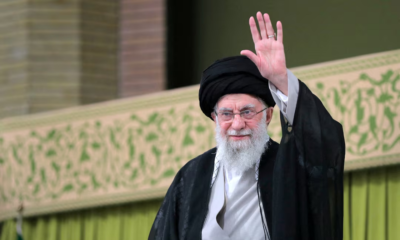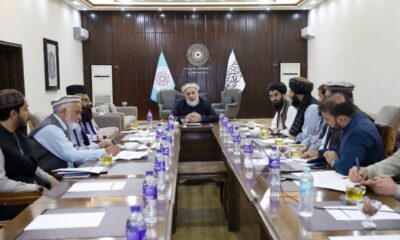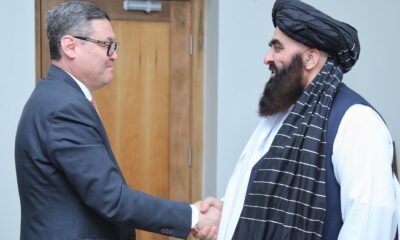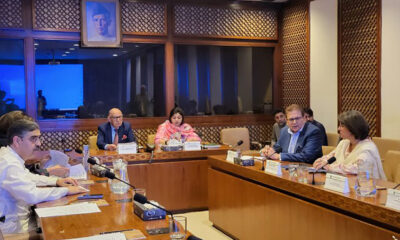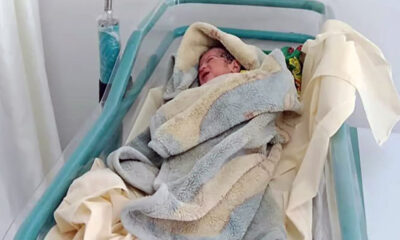Regional
Iran keeping ‘door open’ to talks with Trump
Iran’s deputy foreign minister said that coercion and intimidation would prove ineffective in the long-running stand-off between Iran and the West over Tehran’s nuclear programme
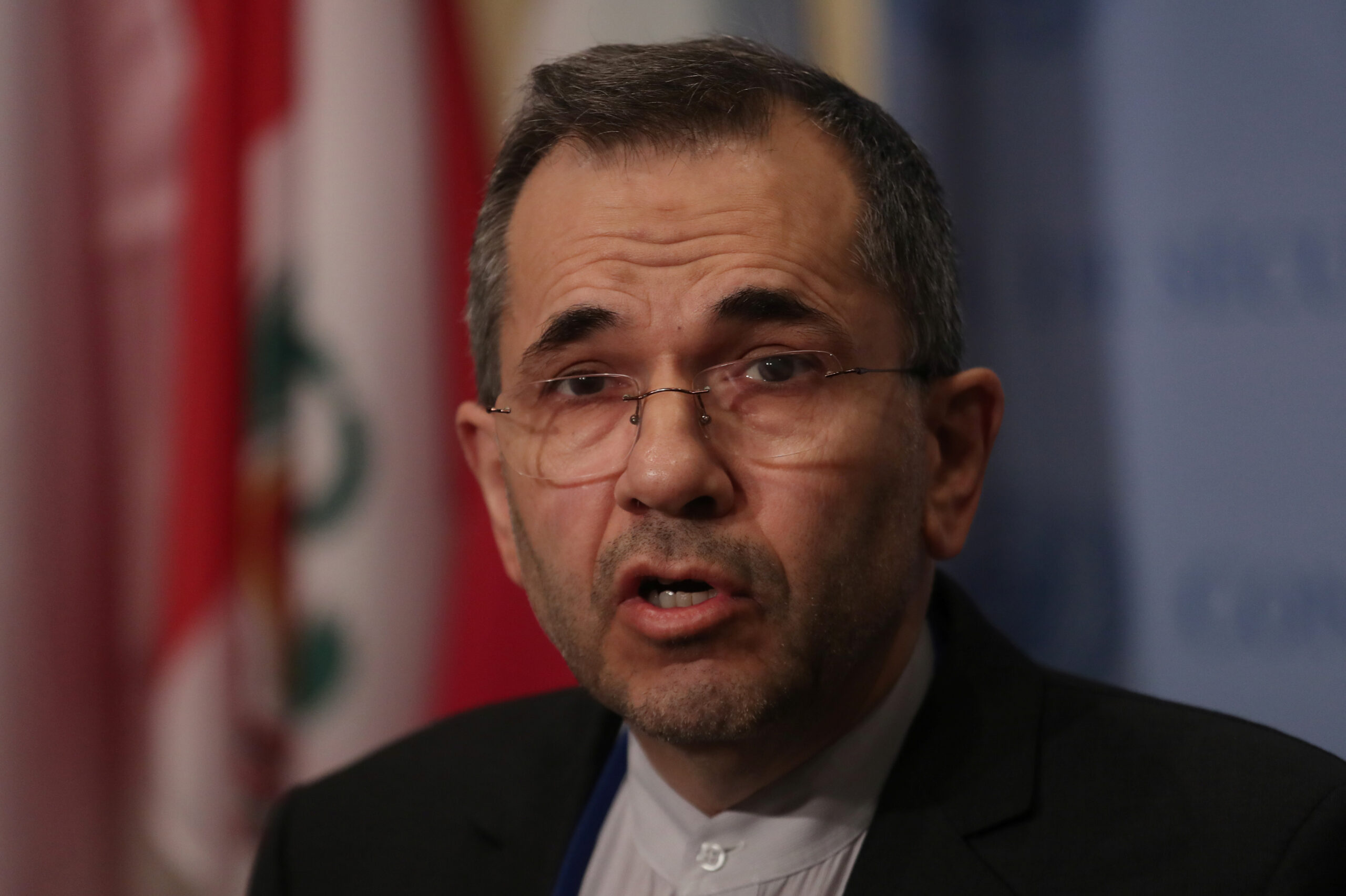
Majid Takht-Ravanchi, Iran’s deputy foreign minister for political affairs says Tehran has kept the door open to negotiations with President-elect Donald Trump’s administration, while warning the US that any attempt to reimpose “maximum pressure” on the country would fail to extract concessions.
Speaking to the Financial Times, Takht-Ravanchi said that coercion and intimidation would prove ineffective in the long-running stand-off between Iran and the West over Tehran’s nuclear program.
“As for negotiations, we need to observe US policy and decide how to respond accordingly,” Takht-Ravanchi said.
“Right now, the key question is how the new administration will approach Iran, the nuclear issue, regional security and the Middle East. It’s premature to speculate about specific outcomes.”
Takht-Ravanchi said the nuclear deal reached with the West in 2015, from which Trump later withdrew the US, “could still serve as a foundation and be updated to reflect new realities”, adding that “if the other parties return to their commitments, we have repeatedly said that we are willing to do the same”.
He added: “We do favour negotiations, as we proved [with that deal] . . . But who sabotaged the negotiations previously? It was the Trump administration who was unwilling to negotiate.”
At the same time, the veteran diplomat and former nuclear negotiator warned that if Trump again takes a tough approach, “maximum pressure will be met with maximum resistance”.
“We will continue to work around sanctions, diversify our trade partners and strengthen regional relations to maintain calm,” he added.
During his first term as US president, Donald Trump sparked a nuclear stand-off with Iran after he abandoned the 2015 accord, known as the JCPOA, that Tehran had signed with world powers, and imposed waves of sanctions on the Islamic republic in what he called a “maximum pressure” campaign.
He accused Tehran of violating the “spirit” of the agreement by funneling newfound revenue to support its regional proxies, notably Lebanon’s Hezbollah.
In retaliation, Iran dramatically expanded its nuclear activities, and is enriching uranium near to weapons-grade despite insisting its programme is for civilian purposes, Financial Times reported.
People familiar with Trump’s thinking have told the Financial Times his administration would try to “bankrupt” Iran to force the republic into talks.
The regional and nuclear crises have stoked fears in Tehran that Trump will once again try to drive Iran’s oil exports — its vital source of hard currency — to zero. In recent years Iran has substantially increased oil sales, mainly to China.
Takht-Ravanchi sought to downplay the potential for tighter oil sanctions under a second Trump presidency.
“While developments may occur, they won’t lead to significant changes,” he said, adding: “If the Trump administration decides to pursue the maximum pressure policy in the oil market again, it will surely fail. In today’s world, no single country can dictate terms to the entire international community.”
For now, he said, “We hope he doesn’t repeat the same mistake because the outcome will be no different.”
Regional
Khamenei downplays US talks prospects as some Iranians’ hopes stir, currency gains
Iran’s clerical rulers have publicly said that demands such as dismantling the country’s peaceful nuclear programme or its conventional missile capabilities were off the table.
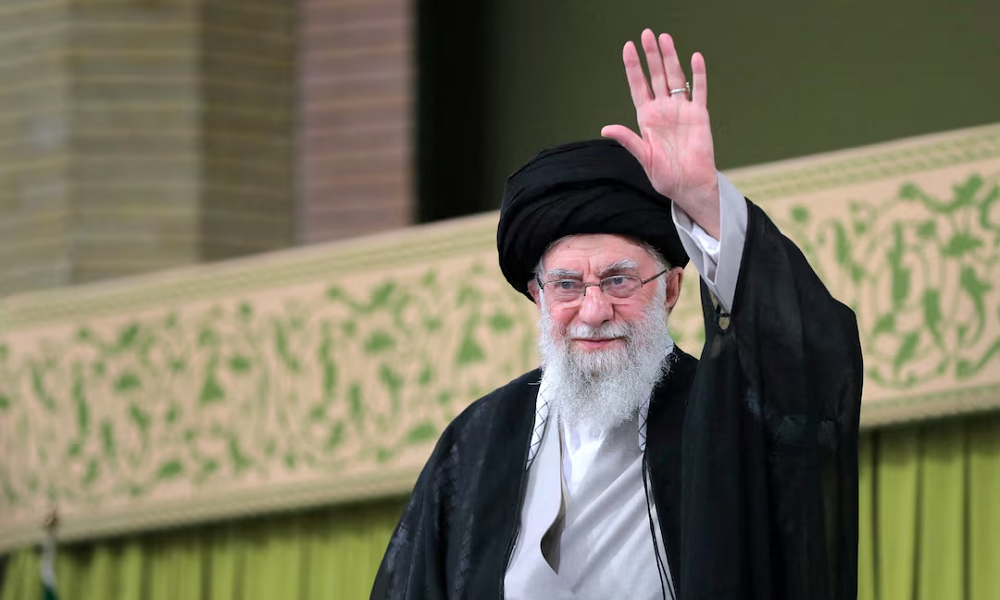
Iran’s Supreme Leader Ayatollah Ali Khamenei sought on Tuesday to play down expectations of a breakthrough in nuclear talks with the U.S., following stirrings of hope among some Iranians weary of economic hardships that have at times sparked public unrest.
Failure to reach a deal with President Donald Trump to end Iran’s decades-long dispute with the West could profoundly hurt the Islamic Republic, Iranian politicians and insiders have said, even if Washington is subsequently portrayed by Tehran as the guilty party.
A second round of nuclear talks will be held in Muscat on April 19.
Iran’s battered rial currency has gained some 20% against the dollar in the past few days, with many Iranians hoping an deal to end Iran’s economic isolation may be within reach.
“We are neither overly optimistic nor pessimistic regarding them. After all, it is a process which was decided and its first steps have been well implemented,” Khamenei said in a meeting with officials, according to state media.
White House special envoy Steve Witkoff, who leads the talks with Iran, said that Trump has asked him to “create a tough, fair deal that will endure.”
“Any final arrangement must set a framework for peace, stability, and prosperity in the Middle East – meaning that Iran must stop and eliminate its nuclear enrichment and weaponization program,” Witkoff posted on X on Tuesday.
Iran’s clerical rulers have publicly said that demands such as dismantling the country’s peaceful nuclear programme or its conventional missile capabilities were off the table.
Tehran has approached the talks warily, doubting the likelihood of an agreement and suspicious of Trump, who abandoned Tehran’s 2015 nuclear pact with six world powers during his first term in 2018. He has repeatedly threatened to use military force if there is no deal.
“From here on, it (the talks) must be followed through carefully, with red lines clearly defined for both the other side and for us. The negotiations may lead to results, or they may not,” said Khamenei.
“Avoid linking the country’s fate to these talks.”
Some Iranian officials have suggested that Trump’s business background could make him more receptive to a deal if it includes economic incentives, such as a potential purchase of U.S.-made planes or unlocking of Iran’s economy for U.S. investors.
But a number of Iranian newspapers have warned about inflating public expectations with “baseless hype”.
“Why do you make promises about the talks that cannot be fulfilled? … Don’t undermine public trust with promises made only for fleeting media attention,” wrote the Khorasan newspaper on Monday, in response to comments by an official that raised hopes of economic breakthroughs from the talks.
Since relations with Washington collapsed after Iran’s 1979 Islamic revolution that ousted the U.S.-backed Shah, enmity toward the U.S. has been a rallying point for Iran’s rulers.
But inflation, unemployment and lack of investment as a result of crippling sanctions, reimposed after Trump ditched the 2015 nuclear pact, persuaded Khamenei to support talks with the Trump administration.
Tehran’s concerns were exacerbated by Trump’s speedy revival of his first term’s “maximum pressure” campaign aimed at driving Iran’s oil exports towards zero with more sanctions.
Since 2019, Iran has far surpassed its uranium enrichment limits, according to the International Atomic Energy Agency (IAEA). Tehran is producing stocks of fissile purity well above what Western powers say is justifiable for a civilian energy programme and close to weapons grade.
Tehran has long denied seeking nuclear weapons.
“What Tehran wants in return (from the U.S.) is for sanctions to be removed on several sectors. Once those sanctions are removed, the U.S. cannot bring them back under other pretexts.” the state-run Tehran Times newspaper reported on Monday.
Regional
Iranian foreign minister to visit Moscow ahead of second Iran-US meeting
Moscow, a party to Iran’s 2015 nuclear pact, has supported Tehran’s right to have a civilian nuclear programme.
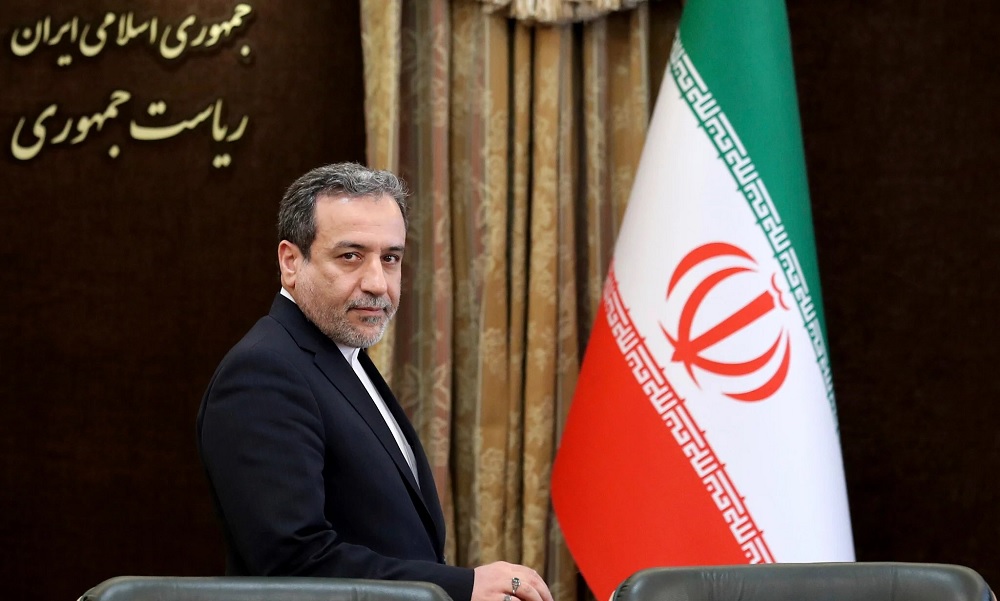
Iranian Foreign Minister Abbas Araqchi will visit Russia this week ahead of a planned second round of talks between Tehran and Washington aimed at resolving Iran’s decades-long nuclear stand-off with the West, Reuters reported.
Araqchi and U.S. President Donald Trump’s Middle East envoy, Steve Witkoff, held talks in Oman on Saturday, during which Omani envoy Badr al-Busaidi shuttled between the two delegations sitting in different rooms at his palace in Muscat.
Both sides described the talks in Oman as positive, although a senior Iranian official told Reuters the meeting “was only aimed at setting the terms of possible future negotiations.”
The second round of the nuclear talks between Tehran and Washington will be held in Oman’s Muscat on Saturday, Iran’s state news agency IRNA on Monday quoted Foreign Ministry spokesman Esmaeil Baghaei as saying.
Earlier on Monday, Italian news agency ANSA reported that Italy had agreed to host the talks’ second round, and Iraq’s state news agency said Araqchi told his Iraqi counterpart that talks would be held “soon” in the Italian capital under Omani mediation, read the report.
Tehran has approached the talks warily, doubting the likelihood of an agreement and suspicious of Trump, who has threatened to bomb Iran if there is no deal.
Washington aims to halt Tehran’s sensitive uranium enrichment work – regarded by the United States, Israel and European powers as a path to nuclear weapons. Iran says its nuclear programme is solely for civilian energy production.
Iranian Foreign Ministry spokesman, Baghaei, said Araqchi will “discuss the latest developments related to the Muscat talks” with Russian officials.
Moscow, a party to Iran’s 2015 nuclear pact, has supported Tehran’s right to have a civilian nuclear programme.
Iran’s Supreme Leader Ayatollah Ali Khamenei, who has the final say on vital state matters, distrusts the United States, and Trump in particular.
But Khamenei has been forced to engage with Washington in search of a nuclear deal due to fears that public anger at home over economic hardship could erupt into mass protests and endanger the existence of the clerical establishment, four Iranian officials told Reuters in March.
Tehran’s concerns were exacerbated by Trump’s speedy revival of his “maximum pressure” campaign when he returned to the White House in January.
During his first term, Trump ditched Tehran’s 2015 nuclear pact with six world powers in 2018 and reimposed crippling sanctions on the Islamic Republic.
Since 2019, Iran has far surpassed the 2015 deal’s limits on uranium enrichment, producing stocks at a high level of fissile purity, well above what Western powers say is justifiable for a civilian energy programme and close to that required for nuclear warheads, Reuters reported.
The International Atomic Energy Agency has raised the alarm regarding Iran’s growing stock of 60% enriched uranium, and reported no real progress on resolving long-running issues, including the unexplained presence of uranium traces at undeclared sites.
IAEA head Rafael Grossi will visit Tehran on Wednesday, Iranian media reported, in an attempt to narrow gaps between Tehran and the agency over unresolved issues.
“Continued engagement and cooperation with the agency is essential at a time when diplomatic solutions are urgently needed,” Grossi said on X on Monday.
Regional
Saudi Arabia plans to pay off Syria’s World Bank debts – Reuters
Syria has around $15 million in arrears to the World Bank which must be paid off before the international financial institution can approve grants and provide other forms of assistance.
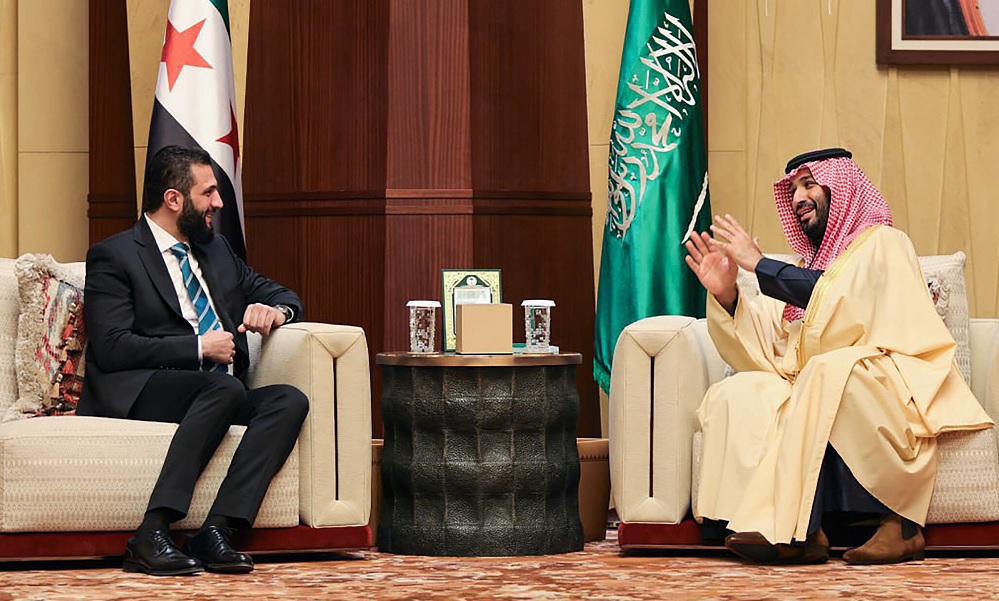
Saudi Arabia plans to pay off Syria’s debts to the World Bank, paving the way for the approval of millions of dollars in grants for reconstruction and to support the country’s paralysed public sector, Reuters reported on Monday citing three people familiar with the matter
The plans, which have not been previously reported, would be the first known instance of Saudi Arabia providing financing for Syria since Islamist-led rebels toppled former leader Bashar al-Assad last year.
It may also be a sign that crucial Gulf Arab support for Syria is beginning to materialize after previous plans, including an initiative by Doha to fund salaries, were held up by uncertainty over U.S. sanctions.
Last month, Qatar announced a plan to provide Syria with gas via Jordan to improve the nation’s meagre electricity supply, a move that sources told Reuters had Washington’s nod of approval.
A spokesperson for the Saudi Ministry of Finance told Reuters, “We do not comment on speculation, but make announcements, if and when they become official.”
The Saudi government’s media office, a World Bank spokesperson and a Syrian government official did not immediately respond to requests for comment.
Syria has around $15 million in arrears to the World Bank which must be paid off before the international financial institution can approve grants and provide other forms of assistance.
But Damascus is short of foreign currency and a previous plan to pay off the debts using assets frozen abroad did not materialize, according to two people familiar with the matter.
World Bank officials have discussed providing financing to help reconstruct the country’s power grid, heavily damaged by years of war, and also to support public sector pay, two of the sources said.
Reuters reported on Saturday that Syria would send a high-level delegation to Washington for the yearly spring meetings of the World Bank and IMF later this month, marking the first visit by Syrian officials to the U.S. since Assad’s ouster.
It is unclear whether the Syrian delegation will meet with any U.S. officials.
Tough U.S. sanctions imposed during Assad’s rule remain in place.
In January, the U.S. issued a six-month exemption for some sanctions to encourage humanitarian aid, but this has had limited effect.
Last month the U.S. gave Syria a list of conditions to fulfil in exchange for partial sanctions relief but the administration of U.S. President Donald Trump has otherwise engaged little with the country’s new rulers.
That is in part due to differing views in Washington on how to approach Syria.
Some White House officials have been keen to take a more hard line stance, pointing to the new Syrian leadership’s former ties to Al-Qaeda as reason to keep engagement to a minimum, according to diplomats and U.S. sources.
-
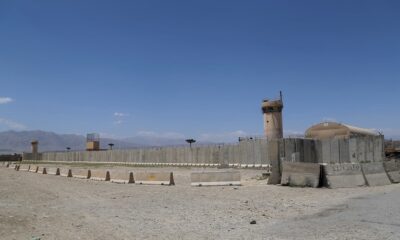
 Latest News4 days ago
Latest News4 days agoNo American military presence in Bagram: US defense official
-
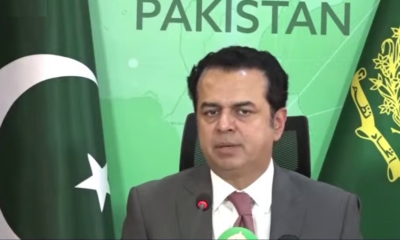
 Latest News5 days ago
Latest News5 days agoNo new deadline will be given for Afghan refugees: Pakistani official
-
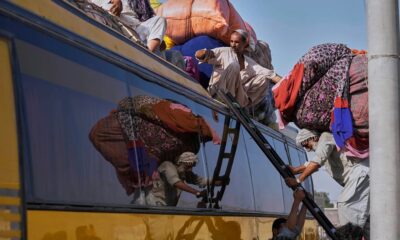
 Latest News5 days ago
Latest News5 days agoPakistan warns it may expel thousands of Afghans hoping for resettlement in the West
-
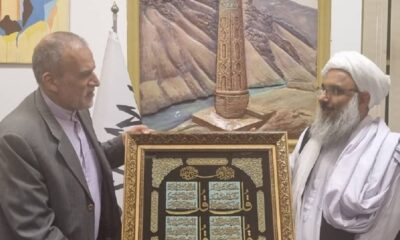
 Latest News5 days ago
Latest News5 days agoIranian economic delegation visits western Afghanistan
-
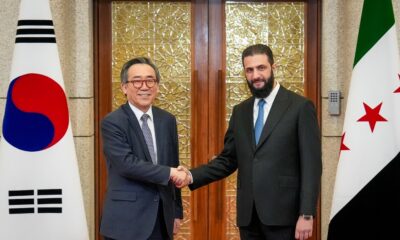
 Regional5 days ago
Regional5 days agoSouth Korea establishes diplomatic ties with Syria
-
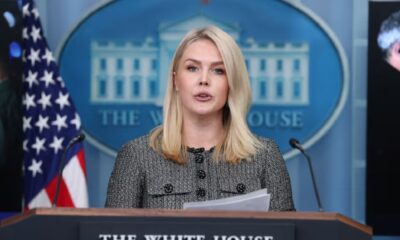
 World4 days ago
World4 days agoWhite House says ‘all hell to pay’ should Iran develop nuclear weapon
-
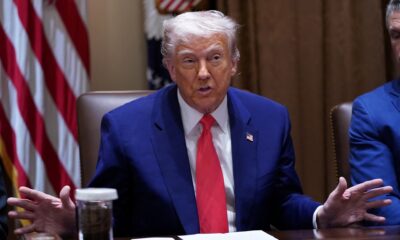
 Latest News4 days ago
Latest News4 days agoTrump ends protected status for thousands of Afghans, Cameroonians
-
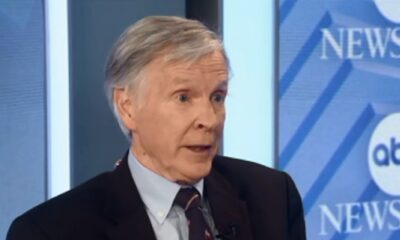
 Latest News4 days ago
Latest News4 days ago‘No one wants to see a nuclear-armed Iran,’ says former US ambassador to Afghanistan


